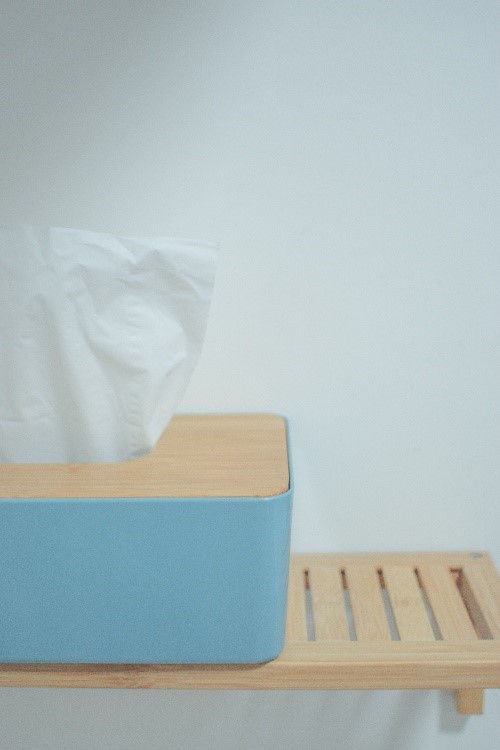Did you know that there are drug free ways to treat allergies so you can enjoy all seasons, indoors and out? If you’re not one to reach for a prescription, then taking a look at the following options could make your allergy season just another walk in the park.
Nettle Leaf
The first on our list is nettle leaf. If you have ever encountered stinging nettle out in nature, you may think this is a typo. But, believe it or not, the plant that can cause stinging, itching, and rashes can also bring prompt allergy relief, especially if taken at the first sign of allergic reaction. (1) The leaves are what is used to treat allergies. They contain histamine, the same body chemical that causes allergic reactions. This may seem counterintuitive, but histamine has long been used to treat even severe allergic reactions. (2) Interestingly, in severe allergic reactions, low levels of histamine have been found in plasma versus the high number that would be expected. In addition, a study from the National College of Naturopathic Medicine showed that nettle leaf used for allergy relief fared better than placebos in a double-blind, randomized study involving 98 people. (3) Nettle leaves are often taken in the form of tea but can also be purchased in tablets and capsules.
Bee Pollen
As you have certainly observed at some point, bees seem to bounce from flower to flower to flower. They really ARE busy! What they are actually doing is gathering pollen. This pollen ends up in the honey they produce. For allergy sufferers, this means that eating a bit of raw local honey each day can be a natural way to slowly get your body used to the pollens all around you so you stop having allergic reactions to them. The key here is to use local honey so you are desensitizing your body to pollens you are likely to encounter in your geographical area. Look for honey gathered within no more than a radius of thirty miles from home. A 2008 study demonstrated the effectiveness of bee pollen for treating allergies using subjects with diagnosed birch pollen allergies and treating them with honey containing birch pollen. The subjects given the birch pollen honey experienced fewer symptoms, less severity of symptoms, and more symptom free days than those not taking the birch pollen honey. (4) Bee pollen can be purchased in capsule form but, if you want to be sure you are getting your local pollen, your best bet would be to buy local honey and consume some daily.
Quercetin
Next up is quercetin which is a bioflavonoid contained in some fruits and vegetables. It’s what gives the produce its color. Quercetin works by stabilizing the release of histamine which helps to control allergy symptoms. It is so effective at this, in fact, that Iranian researchers have been able to prove that quercetin can help control peanut allergy symptoms (peanut allergy is one of the most serious allergies out there). (5) Quercetin seems to work best to manage allergies if taken several weeks prior to allergy season and then continued throughout the season. Quercetin is available in tablet or capsule form.
EMIQ
If you try quercetin and it seems to help but you could use something with a bit more “oomph”, EMIQ could be the answer. EMIQ, or enzymatically modified isoquercitrin, is a form of quercetin combined with vitamin C that makes the quercetin more readily available to the body. In human studies, the enzymatic process used to concentrate quercetin to produce EMIQ was shown to create higher levels of quercetin in blood plasma versus unmodified quercetin on its own. (6) What does this mean for you? It means that this version of quercetin packs a bigger punch so you can go smell the roses and actually smell them because your nose won’t be stuffy.
Homeopathy
Homeopathic remedies (not to be confused with “home remedies”), can also work quite well to treat allergies and may be the best option for some people. Homeopathics work on the law of similars. Discovered in the 18th century by Dr. Samuel Hahnemann, this means that the symptoms a substance causes in its natural form can be used to treat those same symptoms in its homeopathic form. For example, onions can make your eyes water when you slice into one. The homeopathic form of onion, allium cepa, can stop your eyes from watering. Therefore, if watery eyes are your big allergy symptom, this would be a suitable homeopathic remedy to treat the problem. There are many homeopathic remedies to treat the various allergy symptoms people experience. A good place to start, if you suffer from multiple allergy symptoms, would be to try histaminum which is derived from histamine and helps reduce the overall sensitivity of the immune system. A 2013 study on the clinical verification of homeopathy and allergic conditions showed favorable results using homeopathic medicines to treat asthma and allergies when compared with allopathic medicine. (7) Another study shows that homeopathic medicines are very effective at relieving hay fever symptoms and are comparable to oral steroids in terms of allergic symptom relief (8).
If you are an allergy sufferer, you can be encouraged knowing that there are many safe ways to treat your symptoms to be more comfortable year-round.
Sources:
- https://pubmed.ncbi.nlm.nih.gov/19140159/
- https://www.karger.com/Article/Abstract/194401
- https://europepmc.org/article/med/2192379
- https://pubmed.ncbi.nlm.nih.gov/21196761/
- https://pubmed.ncbi.nlm.nih.gov/20548131/
- Murota K, Matsuda N, Kashino Y, et al.alpha-Oligoglucosylation of a sugar moiety enhances the bioavailability of quercetin glucosides in humans. Arch Biochem Biophys. 2010 Sep 1;501(1):91-7.
- https://pubmed.ncbi.nlm.nih.gov/23290880/?from_term=homeopathy+and+allergies&from_pos=1
- https://homeopathychoice.org/app/uploads/2019/02/Homeopathys-Role-in-Helping-Allergies-AFHC-Citizen-Petition-Supporting-Document.pdf?fbclid=IwAR2GJPZlq49dzKHkyfSrSg6NfLbMyV3XfpqjsbAZRWxvX6mDyLhRiCQ1-TQ

